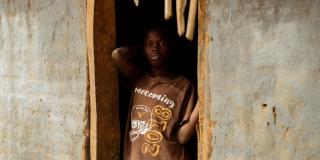
In Malawi, 88% of children enroll in primary school, but only 33% complete the vital first stage of their education.1
Although enrolling a child in school has been free since 1994, families still need to cover the costs of shoes, uniforms, pens and notebooks. Many cannot afford to do so, and children drop out of school without the ability to read, write and count. They face a life trapped in the unforgiving cycle of poverty.
A day in the life of a student in Malawi
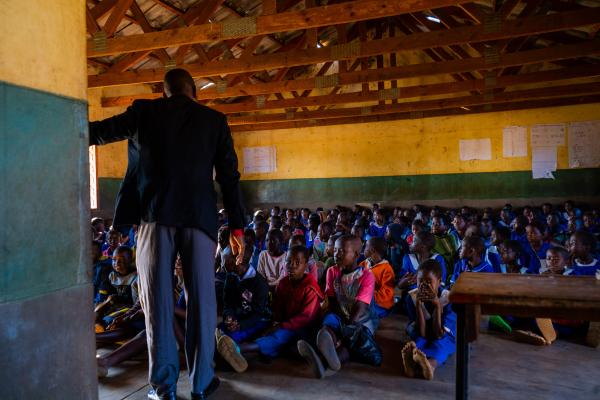
In Malawi, children wake up when the sun rises, get dressed and walk to school. Many of them live in very small homes in rural areas, and they must walk miles to attend school every day. Only few of them wear shoes and many must walk on the dusty ground with bare feet. Lots of them won’t have eaten breakfast before embarking on their journey.
When they get to school, children in Standard Class 2 (roughly equivalent to year 2 in the UK) will sit down in their classroom on the bare concrete floor. In the winter it’s freezing cold, and in the summer, boiling hot. There are 200 other students sat in the classroom with them. It’s chaotic, cramped, and there’s only one teacher.
Imagine trying to learn in a classroom where you’re shoulder-to-shoulder with so many children that you can barely concentrate. Imagine trying to teach 200 children at once, when so few of them have paper, pens or textbooks.
Meet Mphatso*
Mphatso is 14 years old and, after several attempts to graduate to Class 3, he dropped out of school without the ability to read or write. He was sat in class with 200 other students unable to learn, so what was the point?
If you visited Mphatso at home, you’d find his mother, his father, siblings and his grandmother. The whole family lives in a one-room house, built from baked mud bricks, with a thatched roof. There is no running water or electricity.
Many other families in rural Malawi live in the same way – struggling to grow enough food to eat and sell, and increasingly facing periods of hunger. At home, Mphatso faces strenuous work to support his family; helping his father forge bricks to build houses or farming the crops on their land.
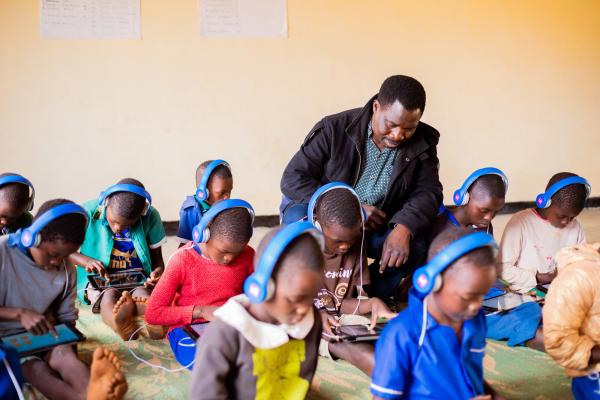
Salome, Mphatso’s grandmother, never went to school. His parents, Jailosi and Rose, both left early. Salome’s wish is for her grandson’s life to be different.
She wants him to learn to read, write and count, and for education to provide a path to a better life.
Mphatso has a chance to break the generational cycle of poverty in his family, as long as he stays in school. Salome encourages him every day, as she knows all too well the effects of having no access to education.
Her one wish is that her grandson has a better life than she did.
Unlocking potential in primary schools
In Malawi, education is the key to a better life, and VSO’s educational tablets are giving children the education they deserve.
Now, Mphatso is back in school, and he’s excited to go to every day because he gets to visit the VSO learning centre and use an educational tablet.
These tablets are changing children’s futures; they’re charged using solar energy and come fully loaded with learning activities so children can learn everything from spelling to adding. Some of these children will have never owned a book before. For them, using a tablet to learn will be life-changing. If generations before Mphatso’s had used them, their lives would surely be different too.
Imagine how excited he feels, running to the learning centre every day, sitting down with a tablet in his hands and headphones over his ears. Once he logs onto his profile on the tablet, he’s fully focused on the work in front of him.
There are no distractions, no noise, and he can learn at his own pace. There are learning centre co-ordinators and VSO volunteers on hand to support him if he needs it.
Hope for the future
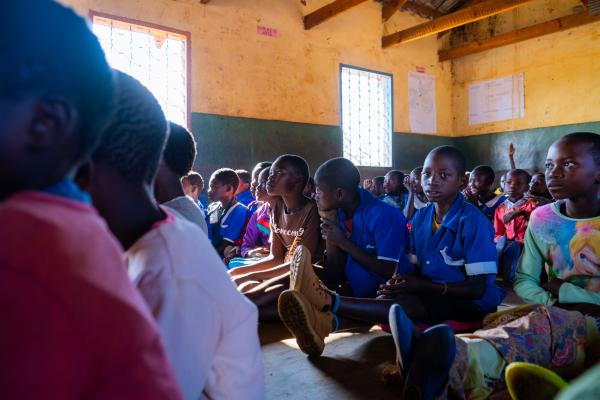
Currently, only 19% of children in Malawi aged seven to 14 have foundational reading skills. Just 13% have foundational numeracy skills.2
But children like Mphatso now have the chance to finish school with the ability to read stories and add large numbers thanks to the educational tablets. Not only that, but they’re confident and enthusiastic to learn using pioneering technology. “When I go to the learning centre, the things I learn make me happy to learn more. Since I’ve been using the tablets, my reading and writing has changed,” Mphatso says.
Salome is hopeful for his future, and sees a better life on the horizon for Mphatso. “My parents didn’t care about school. But Mphatso’s education will change his life. He’ll gain knowledge and he’ll be able to provide for us.”
In Malawi, poverty is often passed down from one generation to the next. This Christmas, you could help grant a grandmother’s wish and give a child like Mphatso a chance of a brighter future.
Every day, children are dropping out of school and into a future of poverty. Please give if you can.
*Pseudonyms have been used to protect the identity of the children.
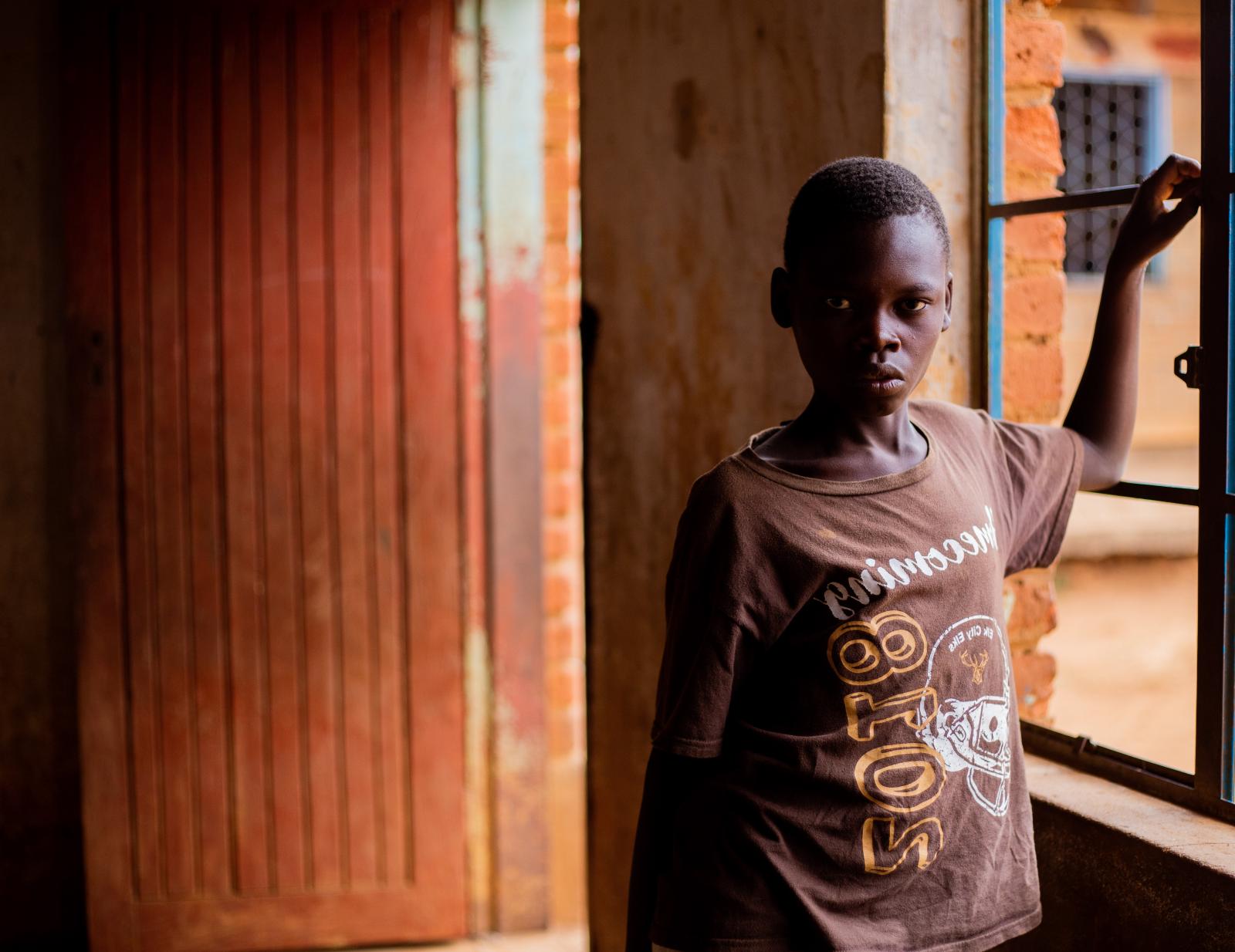
This winter, please give the life-changing gift of reading, writing and counting…
Read more

Transforming lives through education: Geoffrey’s VSO legacy
With a deep belief in the transformative power of education, Geoffrey from Norfolk, UK, has devoted his life both in the UK and abroad to making education more accessible for all.

A ripple of change: how VSO volunteers are transforming communities
Every act of volunteering begins with a choice — a decision to act out of a desire to make a difference. Across the world, VSO volunteers are proving that one spark of action can ignite something much bigger.

The two volunteers empowering girls and young women in Mozambique
Nelma and Carmirene and are two volunteers working on VSO's EAGLE project in Mozambique. For Nelma and Carmirene, education is not just about school, it is about meeting people where they are and using the right tools to challenging harmful norms. Here are their stories.
